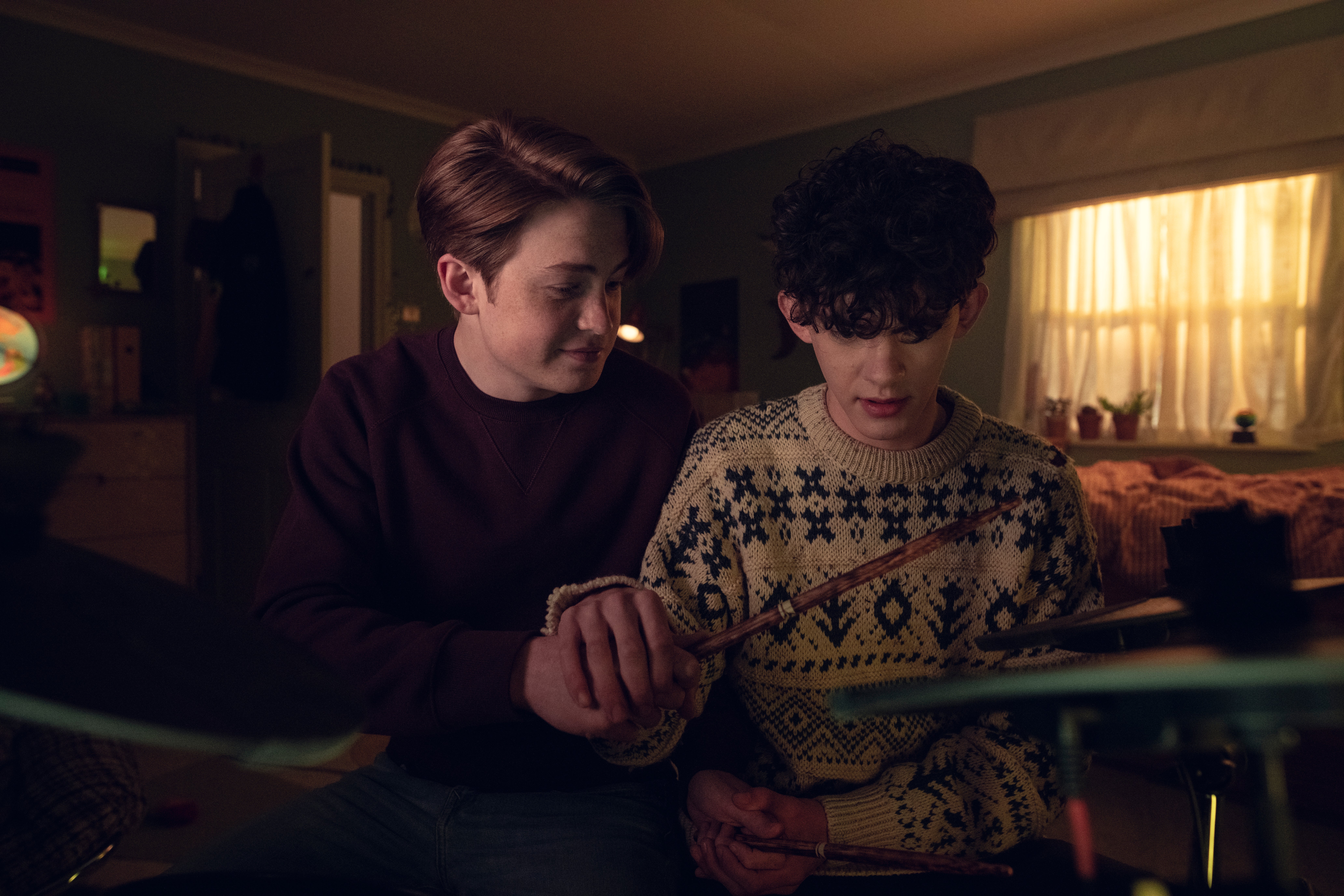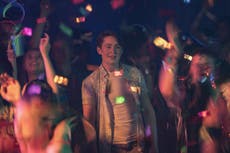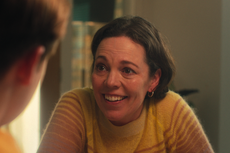‘As a gay man who grew up in the Eighties – I needed Heartstopper’: Queer fans on what the Netflix show means to them
‘I was bullied at school... one failed “straight” marriage later, it took me to the age of 28 to understand and accept myself,’ one contributor tells The Independent
Heartstopper – Netflix’s joyful, warm and fuzzy drama about two British schoolboys who fall in love – has chimed with viewers all around the world.
From gay men who grew up in the Eighties to young queer people today, many have found comfort in the show, which gives queer characters a love story complete with secret snogs, eager texting, and butterflies in the tummy – experiences often only portrayed in heterosexual romcoms.
A few fans of the series wrote to The Independent with their thoughts on Heartstopper and what it means to them. Read on to share in their love of the show…
Nathan Douglas, 33
Heartstopper, for me, is perfect television… just 20 years too late (and the rest!). I am a gay man, who only “came out” five years ago, and it’s TV programmes like this that give our young people the “permission” they still seem to need from society to be who they want to be.
I spent my twenties in a very lonely way, torturing myself that I could not be gay and should not be gay. My day job is a deputy headteacher and so, at school, we teach all parts of the Equality Act.
But if children can learn about equality at school, and see it in everyday life, we will move from tolerance to acceptance to understanding. I have high hopes for the next generation.
Anneke Truus, 19
Growing up queer can often feel quite alienating, especially since it is challenging to find any queer representation in media. Often queer characters are mere stereotypes or caricatures of the queer experience without much depth.
A show like Heartstopper is so important because its characters are far from that. Heartstopper presents young queer characters who are not only navigating their sexualities and gender identities, but also simply being a teenager. They still struggle with bullying and maintaining friendships like non-queer characters do.

I needed characters like Nick and Charlie growing up. I needed to see Nick struggling with his sexuality like I was for so long. I needed to see Charlie finding his worth despite being bullied for who he is. I’m so thankful that young queer people can have a show like this to show them they aren’t alone.
Mike Farquhar, 45
I’ve been a fan of Heartstopper since the first graphic novel [by Alice Oseman] came out, and I love how perfectly it’s been adapted for TV.
As a gay man who grew up in the Eighties and Nineties, these are the stories and role models I needed then, that would have helped me know it was OK to be who I knew I was.
As a consultant paediatrician, I think for LGBT+ young people today, Heartstopper’s positive representation of young British queer people is hugely important – seeing young gay, lesbian, bi, and trans people just being themselves, working out who they are, living their lives like everyone else, showing the joy along with the challenges, has never felt more needed when this government’s commitment to supporting LGBT+ people, and young people especially, has never felt so half-hearted.
Plus: BONUS OLIVIA COLMAN!
Lelami, 18
Heartstopper is such a beautiful production. As a young trans Black girl it was amazing to see someone like me on the TV screen and it reassured me that I can do anything. It explores so many aspects of queer youth and celebrates young queer love.
Young queer love isn’t represented as much at should be and, watching Heartstopper, it was so refreshing to see so many young queer people in a television show fall in love. I love the fact that it isn’t only focused on the relationship between Charlie and Nick but also Tao and Elle’s relationship, as well as Tara and Darcy’s. Within that, we are seeing a spectrum of LGBT+ people. Through representation, Heartstopper is creating a space for queer youth in today’s society.

Rich Bradley-Peters, 49
I lived through this back in the 1980s. Though a completely different era compared to today.
I’ll be 50 this year and I was 18 back in 1990 when I left sixth form. My middle school years, 198–1985, and high school, 1985–1990, were horrific. Teachers were awful, and in many cases complicit in the bullying. At best, they ignored it.
I had crushes on the odd fellow student. But the accepted normal was, of course, “straight”.
I experienced mental and physical torture and bullying. I had no one to confide in.
One failed “straight” marriage later, it took me to the age of 28 to understand and accept myself, and finally be true – in no small part thanks to Section 28 [enacted in 1988 to “prohibit the promotion of homosexuality by local authorities”], the crap teachers, and the bullying from fellow students.
I’m grateful for the life I have now, and with an amazing husband, but those teenage years were truly horrific.
It seems for the most part life is better for current gay/queer teens, but we still see too much bullying and intimidation. I’m just thankful that social media wasn’t around back when I was a teen, as I don’t think I would have coped/survived with that.
I would so love to go back to my old schools and speak with those teachers now, and try and describe the utter helplessness I felt at the time.
So far, I haven’t had the courage to watch Heartstopper, as just reading your interview with Joe Locke takes me back to a more painful time. It has stirred up memories. But I am hoping to watch the series this weekend.
Colin Tully, 29
For me, it’s the innocence of young love, being such a formative experience in our lives, that many of us adult queer people were not able to experience in our youth that makes Heartstopper so impactful.
Plus, the representation of positive queer stories, in spite of hardships, makes me so happy for queer kids today. It’s like the world is saying, you are valid, and you do belong. I also think a show like this should really motivate us all to continue advocating for queer youth, especially trans kids.
Heartstopper is available to watch on Netflix.




Bookmark popover
Removed from bookmarks